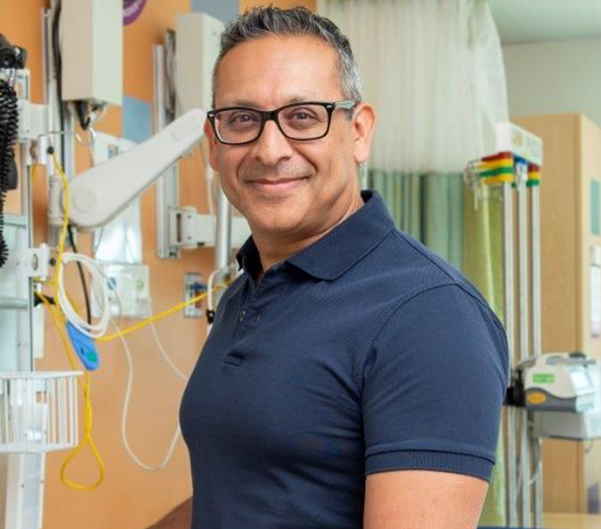How Do You Know I Am Really Dead?

“How do you know I’m really dead?”
This question is a key reason many Canadians hesitate to register as organ donors.
According to the Dead Donor Rule, organ retrieval can only occur after the medical team pronounces the patient legally and clinically dead. But how does the medical team determine when a patient is clinically dead? Until recently, there was little consensus, said Dr. Sonny Dhanani, the Associate Director for donation research for the Canadian Donation and Transplant Research Program.
“When you are brain dead, you stay brain dead,” said Dr. Dhanani. “When your heart stops, you are catastrophically injured, but you are not pronounced dead right away because the heart could restart on its own, something called auto resuscitation,” he explained.
Dr. Dhanani and international colleagues conducted a study to pinpoint the moment when death is permanent if no medical interventions take place. His team observed 631 people across 20 intensive care units in three countries to determine if the heart could restart on its own after stopping…and keep beating.
The study found that in 14% of cases, the heart spontaneously restarted – but usually only for one or two beats, and always within the first 4 minutes and 21 seconds. All patients died in under five minutes.
“This is the natural history of dying,” Dr. Dhanani explained. “Things don’t just stop, they kind of sputter a little bit,” he said, “but 100% of these people died. No one had a miraculous recovery.”
Dr. Dhanani’s research confirmed that waiting five minutes after the heart stops beating before retrieving organs is a safe practice because the heart will not restart after this period. The dead donor rule is adhered to. This approach, known as the ‘the five-minute rule,’ became an integral part of the updated Canadian organ donation guidelines in 2023. It provides scientific backing to the organ donation process and helps increase trust in the system.
“For the first time, it’s not based on just consensus,” said Dr. Dhanani. “We know we are following good rules based on science.”
Dr. Dhanani’s study has led to new areas of research, including how the brain and heart are linked during the dying process and how to optimize organ recovery.
Until more people register for organ donation, Dr. Dhanani and his colleagues will continue to study the most ethical and efficient ways to donate organs because, in his words, “increasing the opportunities for people to be donors is a good thing.”
At a glance
Issue
The demand for organ donation in Canada far exceeds supply, leaving thousands of people waiting for transplants, and many dying before they receive one. Reluctance to donate often stems from the fear of not being clinically dead before organ recovery begins.
Research
Dr. Sonny Dhanani conducted observational studies to determine when death is truly irreversible to ensure organ donation occurs only after death is confirmed. His findings were incorporated into Canadian guidelines to standardize the required waiting period before organ retrieval can take place.
To learn more and register as a donor, visit the visit Canadian Blood Services - Organ Donation
- Date modified: